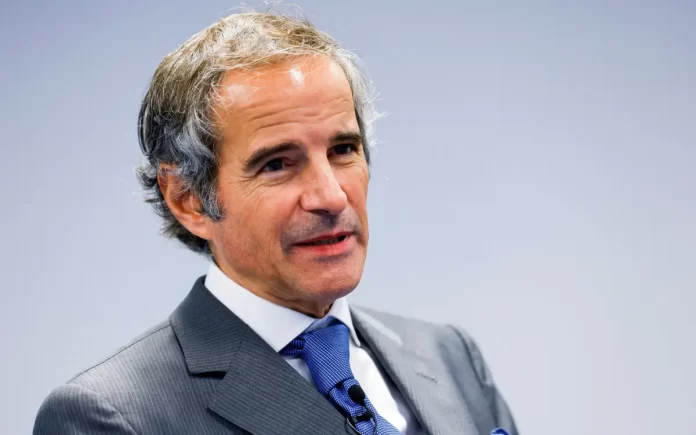New York: The director of the UN’s atomic watchdog agency cautioned on Sunday that a drone strike on one of the six nuclear reactors at the Russian-controlled Zaporizhzhia Nuclear Power Plant has “significantly increased the risk of a major nuclear accident”. Rafael Mariano Grossi confirmed at least three direct impacts against the main reactor containment structures of ZNPP in a statement posted on the social media platform X. “This cannot happen,” he declared.
Grossi stated that this attack was the first of its kind since he outlined five fundamental guidelines in November 2022 to prevent a major nuclear disaster with radioactive fallout.
Also Read: Russian-Controlled Zaporizhzhia Nuclear Reactor Damaged in Drone Attack, IAEA Confirms
Effects of Drone Attack on Nuclear Facility
In a separate statement, the IAEA verified the physical effects of drone assaults at the plant, including at one of its six reactors. It confirmed one casualty.
The agency further remarked, “While damage at unit 6 has not jeopardized nuclear safety, this is a serious incident that could jeopardize the integrity of the reactor’s containment system.”
Officials at the Russian-controlled Zaporizhzhia Nuclear Power Plant reported that Ukrainian military drones attacked the facility on Sunday, targeting the sixth power unit’s dome among other areas.
The plant’s administrators asserted that radiation levels remained normal following the attacks, with no significant damage or casualties reported. However, later on Sunday, Russia’s state-owned nuclear agency, Rosatom, disclosed that three individuals were injured in the “unprecedented series of drone attacks,” particularly when a drone struck a location near the canteen on the site.
The drone strike was promptly reported to specialists at the International Atomic Energy Agency on Sunday, with the agency affirming that “such detonation is consistent with IAEA observations.”
Safety Hazards of Such Attacks
Rafael Mariano Grossi, head of the UN’s atomic watchdog organization, highlighted the safety risks posed by such attacks without attributing blame.
In his post on the social media platform X, he emphasized, “I urge refraining from actions that contradict the 5 IAEA principles and jeopardize nuclear safety.”
Since Moscow dispatched troops into Ukraine and took control of the establishment in 2022, the power plant has been a target of conflict. Amid concerns of a possible nuclear disaster, the IAEA has repeatedly expressed alarm over the nuclear power facility, the largest in Europe. The factory remains close to the combat lines, with both Russia and Ukraine consistently accusing each other of assaulting it.
Although the plant’s six reactors have been offline for months, it still requires electricity and trained personnel to operate critical safety measures such as cooling systems.
Other Bombardment Incidents
Additionally, regional governor Ivan Fedorov reported on Sunday that three people died when a Russian rocket struck their home in the front-line settlement of Huliaipole in the partially controlled southeast of Zaporizhzhia, Ukraine. Two more individuals were injured in another bombardment of Huliaipole later on Sunday.
In a separate incident, Oleh Syniehubov, regional governor of Ukraine’s Kharkiv area, reported that three people were injured by Russian bombardment.



